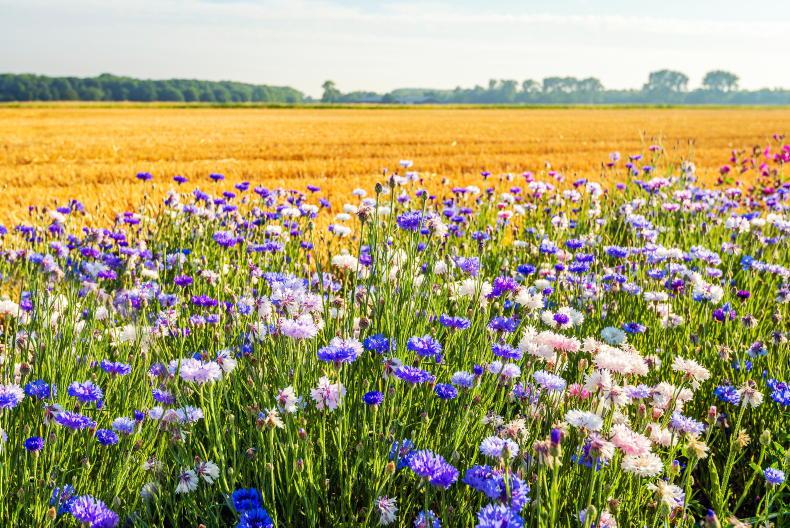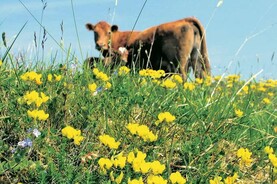While the Government has set ambitious targets for the coming years, these goals are within reach. Achieving them will require a collaborative effort across the entire industry, highlighting the potential for innovation and growth in the sector.
The agricultural sector is required to reduce its greenhouse gas (GHG) emissions by 25% by 2030. A recent report from the Environmental Protection Agency (EPA) highlights the strides Irish farmers have made in reducing agricultural emissions.
Notably, GHG emissions from agriculture decreased by 4.6% (or 1.01 Mt CO2eq) in 2023, following a 0.7% reduction in 2022. This progress in 2023 was driven largely by an 18% decrease in synthetic fertiliser.
Ireland's Food Vision 2030 is a cornerstone of the country's commitment to sustainability in agriculture, aligning with broader national goals outlined in the Climate Action Plan. This ambitious 10-year strategy not only sets targets for emissions reductions from the agri-food sector by 2030, but also aims to enhance water quality and biodiversity, positioning Ireland as a global leader in sustainable food systems.
The pathway to achieving these goals is supported by the Teagasc marginal abatement cost curve (MACC), which identifies the most cost-effective measures for reducing emissions in agriculture.
This includes optimising fertiliser use, improving animal health and enhancing grassland management. By setting these clear and measurable goals, Food Vision 2030, in conjunction with the Teagasc MACC, provides a comprehensive roadmap for the sector, ensuring significant environmental improvements while maintaining productivity and competitiveness in the global market.
Research and development

Research plays a pivotal role in combating climate change by driving innovation and developing sustainable practices essential for reducing environmental impact.
AIB is committed to this effort, investing in research that enhances sustainable practices across the entire food chain.
One key initiative is the Farm Zero C project, a collaborative effort involving AIB, Carbery, BiOrbic, Shinagh Estates, Teagasc, University College Dublin, Trinity College Dublin, University College Cork, Munster Technological University, Dairy Research Ireland and Science Foundation Ireland.
This ambitious project aims to create a climate-neutral, economically viable dairy farm. By integrating various technologies and practices, Farm Zero C strives to reduce GHG emissions while enhancing farm productivity and resilience.
In addition, AIB is a proud partner of the Signpost programme, an industry-wide initiative focused on reducing emissions and improving sustainability in Irish farming. The programme, which involves leading agricultural organisations and institutions, provides farmers with the tools and knowledge to implement best practices in sustainability.
Recognising and rewarding the adoption of research-driven practices is a priority for AIB. The Sustainable Grassland Farmer of the Year awards, part of the Grass10 campaign and sponsored by AIB alongside other industry stakeholders, promotes excellence in grassland management.
Award recipients are at the forefront of sustainable agriculture, demonstrating best practices in growing and utilising quality grass while maintaining environmental, economic and social sustainability.
Sustainable farming practices

Agri-environmental schemes are the cornerstone in driving farmers to implement sustainability actions on the ground. The BETTER Farming for Water initiative and the Agricultural Sustainability Support and Advisory Programme (ASSAP) focus on improving water quality through targeted advice and support for farmers. These initiatives emphasise nutrient management and the reduction of diffuse pollution, which is crucial for protecting Ireland's water bodies.
Schemes such as the Agri-Climate Rural Environment Scheme (ACRES) reward farmers for undertaking practices that benefit the environment. Incorporating multi-species swards and including clover enhances soil health, reduces the need for chemical fertilisers and supports biodiversity.
Ireland’s grass-based production systems is among the most sustainable globally, leveraging the country’s natural climate advantages. These systems enhance animal welfare and product quality and play a vital role in carbon sequestration and biodiversity conservation.
Sustainability certification and industry initiatives
Origin Green - Ireland’s national sustainability programme run by Bord Bia - certifies farms and food producers that meet environmental standards. This certification assures consumers of the sustainability of Irish agricultural products.
Various industry initiatives offer sustainability bonuses to farmers who adopt environmentally friendly practices, such as Origin Green along with local factory bonuses including early slaughter age. These financial incentives encourage the widespread adoption of sustainable methods, contributing to overall sectoral improvements.
The Irish agricultural sector's response to the sustainability challenge is multifaceted, involving a combination of Government policies, innovative farming practices, technological advancements, and collaborative efforts with industry stakeholders such as AIB.
By embracing these changes, the sector not only meets regulatory requirements but also positions itself as a global leader in sustainable agriculture. As we move forward, continuous support and investment in sustainability will be crucial to ensuring the long-term viability and resilience of Irish agriculture.
Lending criteria, terms and conditions apply. Credit facilities are subject to repayment capacity and financial status and are not available to persons under 18 years of age. Security may be required. Allied Irish Banks plc is regulated by the Central Bank of Ireland.






 This is a subscriber-only article
This is a subscriber-only article





